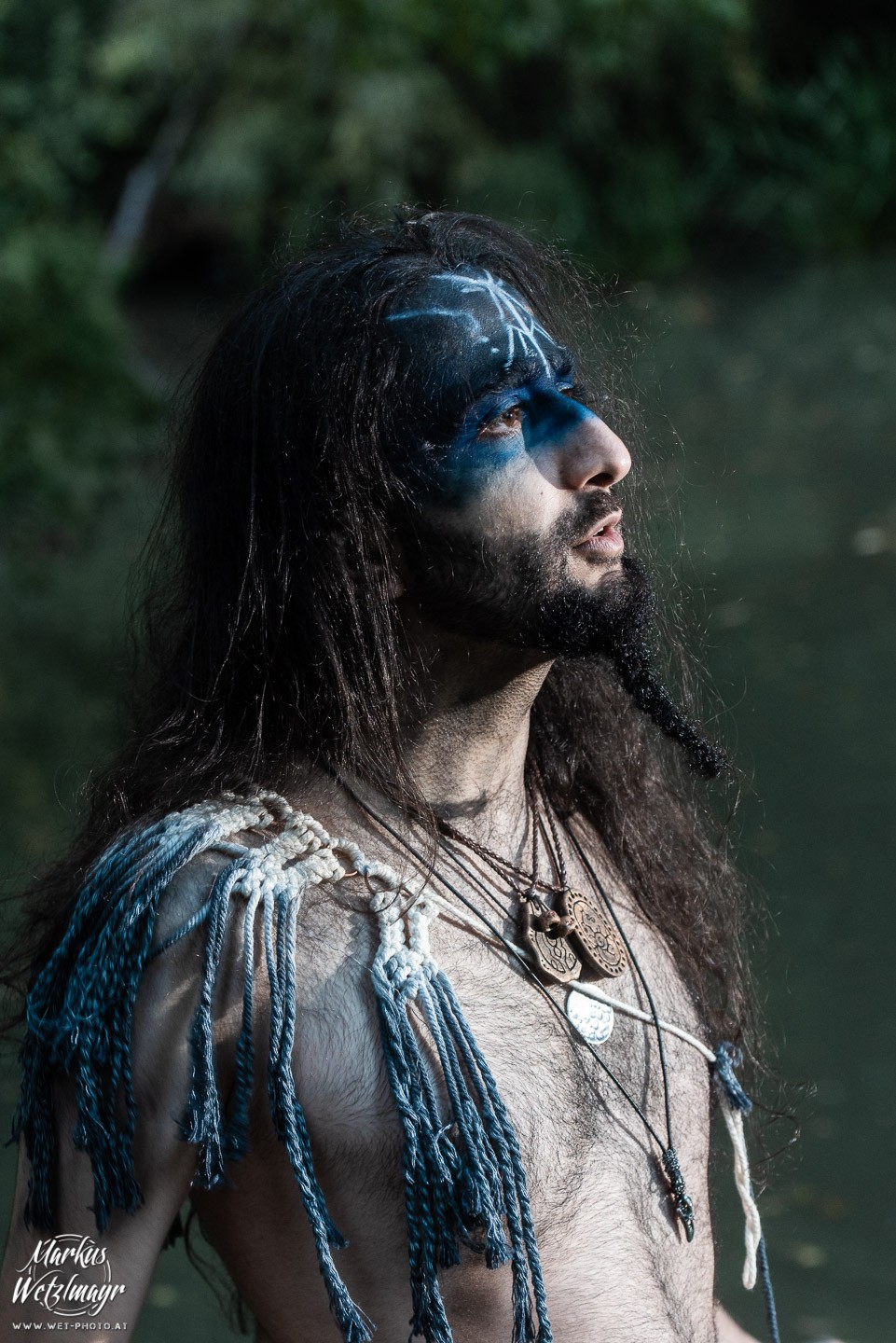We were lucky to catch up with Aryan Havrest recently and have shared our conversation below.
Aryan, appreciate you joining us today. We’d love to hear about a project that you’ve worked on that’s meant a lot to you.
One of the first lessons I learned in my game design course at Vienna’s HTL Spengergasse turned out to also be one of the most important ones in creative fields in general: Fail early and fail often. This also ties into what I acquired during my master’s degree in chemistry, biology and education. In the fields of cognitive biology and behavioral sciences the activity of playing is understood as a process of accumulating and practicing skills and knowledge. Take your time and observe the kids in your family and all the baby pets your friends introduced to their household. What they have in common is the need to learn as much as manageable in as little time as possible, to ensure they fit into their social environment and guarantee their survival, hence their intense desire for playing.
Being creative itself is output oriented application of knowledge and skills. Once we get over ourselves and start to understand the process of learning and practicing as forms of playing, we will eventually see the value in it. Because part of playing is failing and iteratively trying again.
So what makes a project meaningful? In my opinion it is neither commercial success nor the acknowledgement of one’s friends and family, but projects that failed. I’m not talking about full catastrophes, but projects that proved to be challenges. Projects that made you fail at at least a tiny aspect. Projects that forced you to try again in a different way. Because those are the projects that eventually make you grow and learn something new.
As adults, especially in creative fields, we should get off our high horse and openly and actively start playing around. To elaborate a few examples, a music producer might not be a proficient vocalist. This shouldn’t stop them from recording their own voice and lyrics. Just by trying they will leave their comfort zone and enter a new pipeline of workflow. New and potentially amazing results might emerge! Even if their vocal takes are terrible, they can be edited into sound effects. Maybe the pitch they failed to nail is inspiring them to change the scale of the song. Also showing around and maybe even releasing those playful endeavors reel in feedback from people outside one’s personal creative circle. External perspectives are a priceless asset. I myself released songs that I hated, but somehow some of them ended up being just what my audience wanted. This of course helps designing the process of commercial projects. Every product of playing around that is deleted or rotting away on a dusty old hard drive is both a wasted opportunity of market research and a potential experience of success – both can be motivational for further projects.
Playing is not an exclusively childish trait. Every animal with the slightest of cognitive capacities seems to know that, so why are we as humans actively working against enabling playful behavior within ourselves?

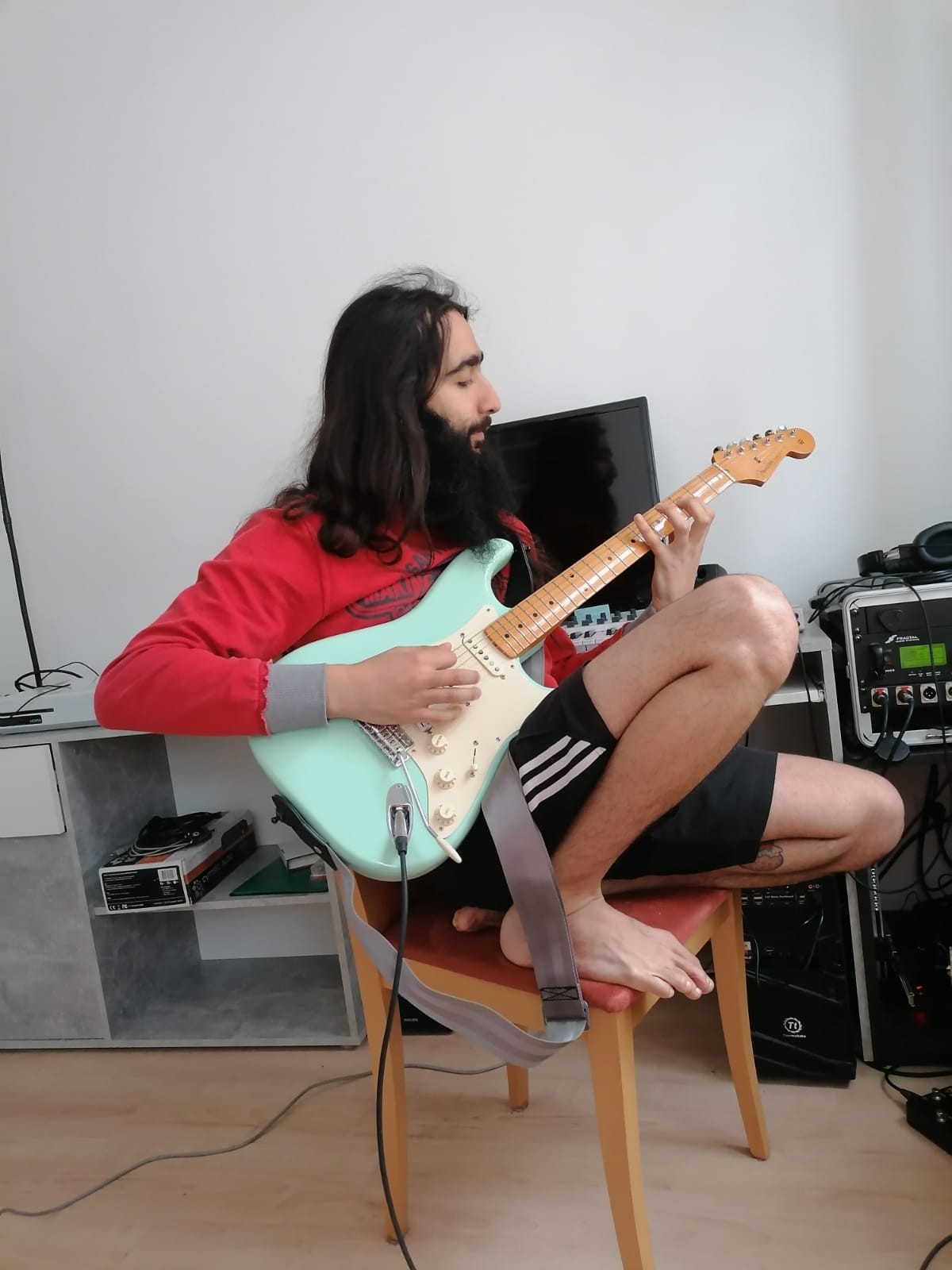
As always, we appreciate you sharing your insights and we’ve got a few more questions for you, but before we get to all of that can you take a minute to introduce yourself and give our readers some of your back background and context?
My name is Aryan Havrest and I am a musician, game designer and teacher in Vienna, Austria. In case your alarm bells went off upon reading my name, I encourage you to consider the existence of cultures that don’t speak English. My name is very common in Kurdish, Indian and Farsi and has nothing to do with English terms that have the same spelling.
That out of the way, I have been musically active since almost forever. In typical elementary school fashion I learned to play the baroque recorder as a child, picked up the electric bass in my teenage years, jumped over the the electric guitar shortly after, got into audio engineering by sheer exposure via various recording sessions with my bands, grew fond of synthesizers a bit later, opened my mind to acoustic guitar shortly after and recently started learning piano.
Regarding bands, symphonic metal and gothic audiences might know Daedric Tales, my orchestral power metal band. But I am also ghost writing and live performing as a session musician for various death metal and goregrind projects. When writing music some ideas turn into electronic or even pop-ish songs. I release my pop and indie tracks under my given name Aryan Havrest. For lack of better terminology I used pop as a genre, but rest assured you won’t find your average hyperproduced four chord song following the mainstream chart blueprint.
My electronic synthwave tracks are released under the name of Inhumantis, working my love for arthropods into my music projects, even if just aesthetically.
I am especially fond of my interdisciplinary photography-music ecological art hybrid titled Permian Forest. This might be my most insignificant project, but I hold it very dear. Initially this was just a small instagram page of dark nature photography focusing on the often overlooked order of magnitude between the microcosmos and our common dimension of perception. Every photograph is accompanied by a valuable biological story or fact, tying into the calming and decelerating nature of photography. Later however I decided to release my ambient tracks under this alias, turning Permian Forest into an underground multimedia art project that is best enjoyed by sitting down and taking your time.
All those artists can be found on all streaming platforms, but I encourage checking out Bandcamp due to reasons of sustainable and ethical media acquisition.
Speaking of my background in science, I got my Magister rerum naturalium degree (Austrian variant of Master of Science) in Chemistry, Biology, Environmental Science and Education – No, I didn’t study for four degrees. Thankfully it was a combined curriculum. With my degree i started teaching in the Higher Federal Institution for Graphical Education and Research (aka. die Graphische), a vocational high school and college for multimedia arts & technology, photography, print media, graphic design and communication.
At the same time I enrolled a college in game design and graduated in 2022, Both video and analog games always have been a great passion of mine and I have been working out concepts, designs and later even mods for games that I loved since my childhood. Learning game design from competent teachers was the next logical step to me.
Since then I have been working on my first video game. As a two man team who both have their day jobs and other creative projects, our game is currently in the pre-alpha stage. But in case you are interested in our little metroidvania I encourage you to follow my socials or check the progress on my personal website. I frequently post updates regarding all my projects.
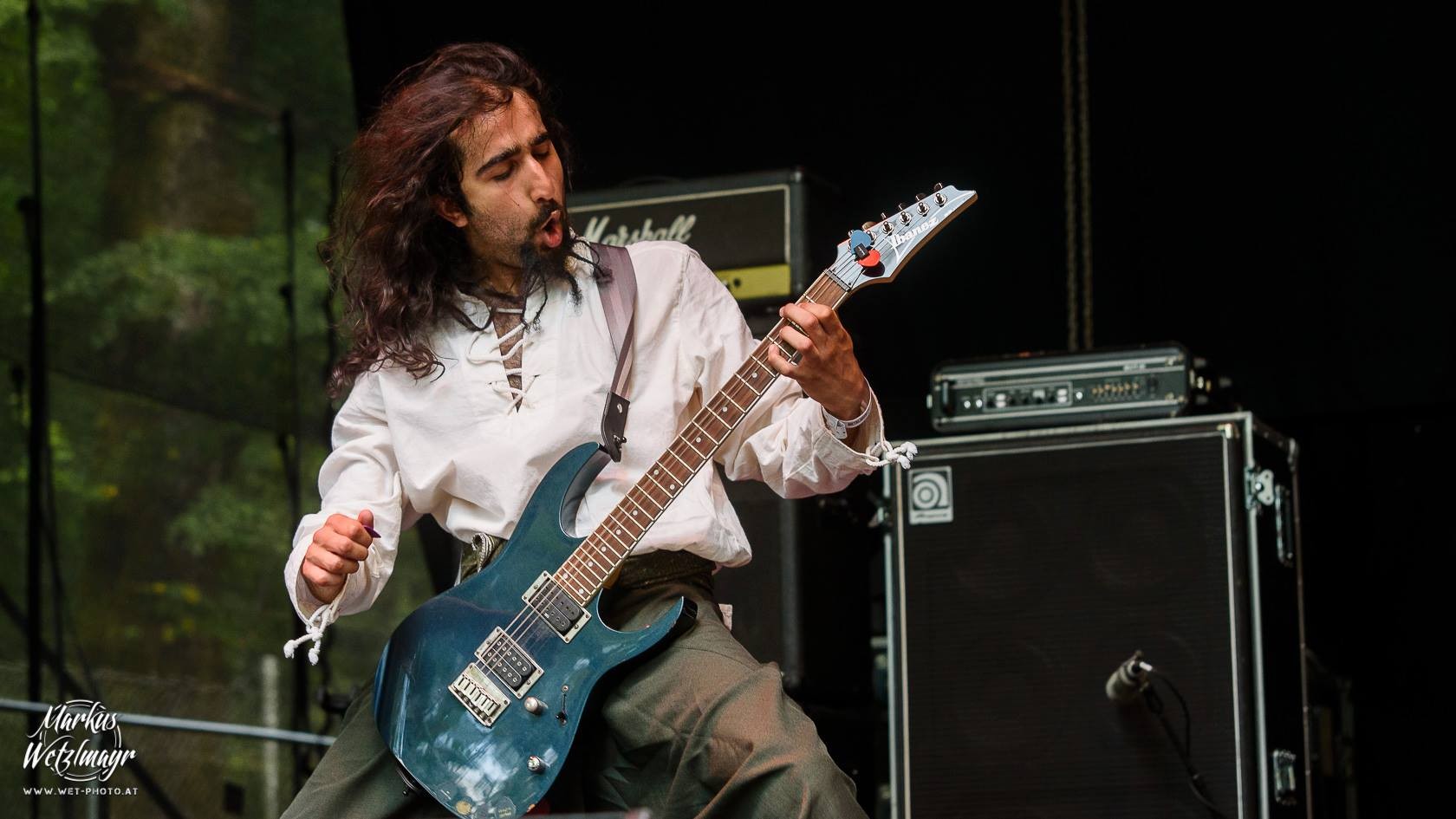
In your view, what can society to do to best support artists, creatives and a thriving creative ecosystem?
Behaviors and taste are often discussed as a generational thing. But once we understand that products of creativity in recent times are treated as media to be consumed (almost in literal manner) rather than timeless pieces of art that deserve respect in form of mindful attention, we begin to understand that artists have to address our global zeitgeist.
When reading comments, posts and such on social media I feel as if most people only view fine arts as “art”. Poetry and music are almost not even considered as art anymore. Much more as a society we are treating these branches of art as short-living products we burn through. Consumers of music rarely actively listen to an artist, let alone a certain album. Instead playlists generated by bots, AI and algorithms that aggregate tracks with a certain feel or mood are the prevalent method of picking music. This passive approach has also rooted deeply into the significance of music itself.
The two biggest culprits here are comfort and gluttony. We have trained ourselves to not only want as much music at our disposal at any time, but also to have access without having to pay for the artist’s hard work. And from a consumer perspective I have to say, I get it. Why pay 15€ for a CD that I will convert into mp3 files anyway. I might as well just acquire the album digitally. Then again, why would I pay 10€ for a digital album without owning a physical trinket, especially when there are only 2-3 tracks that I repeatedly listen to. It’s an easy to follow psychological concept. It is much more convenient and – there we have it – comfortable to just pay one streaming service a monthly fee and have next to all music ever accessible.
The big problem here is, streaming services form an oligopoly that reduced revenue from recordings to almost absolute insignificance. Unless you play tons of live shows, side-hustle as an influencer or build a fanbase of vinyl snobs (not derogatory, I might be one myself) who are willing to support their beloved artists by ordering their merch, you have no chance to profit financially.
Your music, the actual genius that went into composing, arranging, recording and producing a masterpiece of human cognition and creativity, has been degraded to a service of charity to your fans. It’s not the musician’s creativity that they are rewarded for financially. It is their ability to sell every other thing except the creative work they spent hours, days and weeks on.
I personally think this has severely impacted how music has been written in the past decade or so. A lot of nuance has been killed off. Songs became shorter. They mostly start with the hook and aim to immediately captivate the listener, hoping to get them to wake up from their playlist idle and consciously save the track to their library. Most of the time a futile endeavor. And I need to emphasize, none of the beforementioned characteristics are a bad thing on their own. It really is just a shame that due to this selective pressure a lot of diversity is going extinct.
Platforms like Bandcamp however are not algorithm driven. And they pay a comparably huge revenue of 85% to the musician (95% for physical merchandise). So there are sustainable ways to consume music today without sacrificing the comfort of abundance and access. I personally host my own Plex server to remotely access all music I have bought (either on Bandcamp, or on CD) and have a much more comfortable streaming experience than on Apple Music or Spotify, because I can maintain my library according to my own nomenclature and categories. I also feel obliged to mention Jellyfin as a free alternative to Plex. Either way, that ultimately means: no monthly streaming costs in return for your own hand curated media library. A pretty good deal.
A more ethical compromise would be reflecting your streaming behavior. Set your own personal threshold. If you streamed a song or an artists beyond that mark, seek out their Bandcamp page or merch store. Order a shirt, maybe their CD (or vinyl or tape, if you are of an analog breed). This single purchase will help them more than all the streams you will ever realistically be able to generate. So continue what you’re doing, stream music on your favorite platform, but in case of artists that stick with you consciously set the intention to actively support them.
In a society where we can afford monthly payments for 5 or more subscription based multi-million dollar company services, we surely can also afford supporting artists directly. It’s not a matter of resources, but rather a matter of mindset.
Additionally, as consumers we have the power to decide what happens to the money we are spending. Knowing that Spotify’s CEO Daniel Ek owns an investment company that put 100.000.000€ (one hundred million Euro) into the development of military AI technologies, I really wouldn’t want to spend another single cent on the market leader of music streaming.
In other words I am suggesting a paradigm shift that is possible, but will take time. And the groundwork is raising self-awareness. Eventually this is necessary to encourage musicians to be brave again. And this in return will result in a fertile soil for the fruits of the hard labor of future artists.
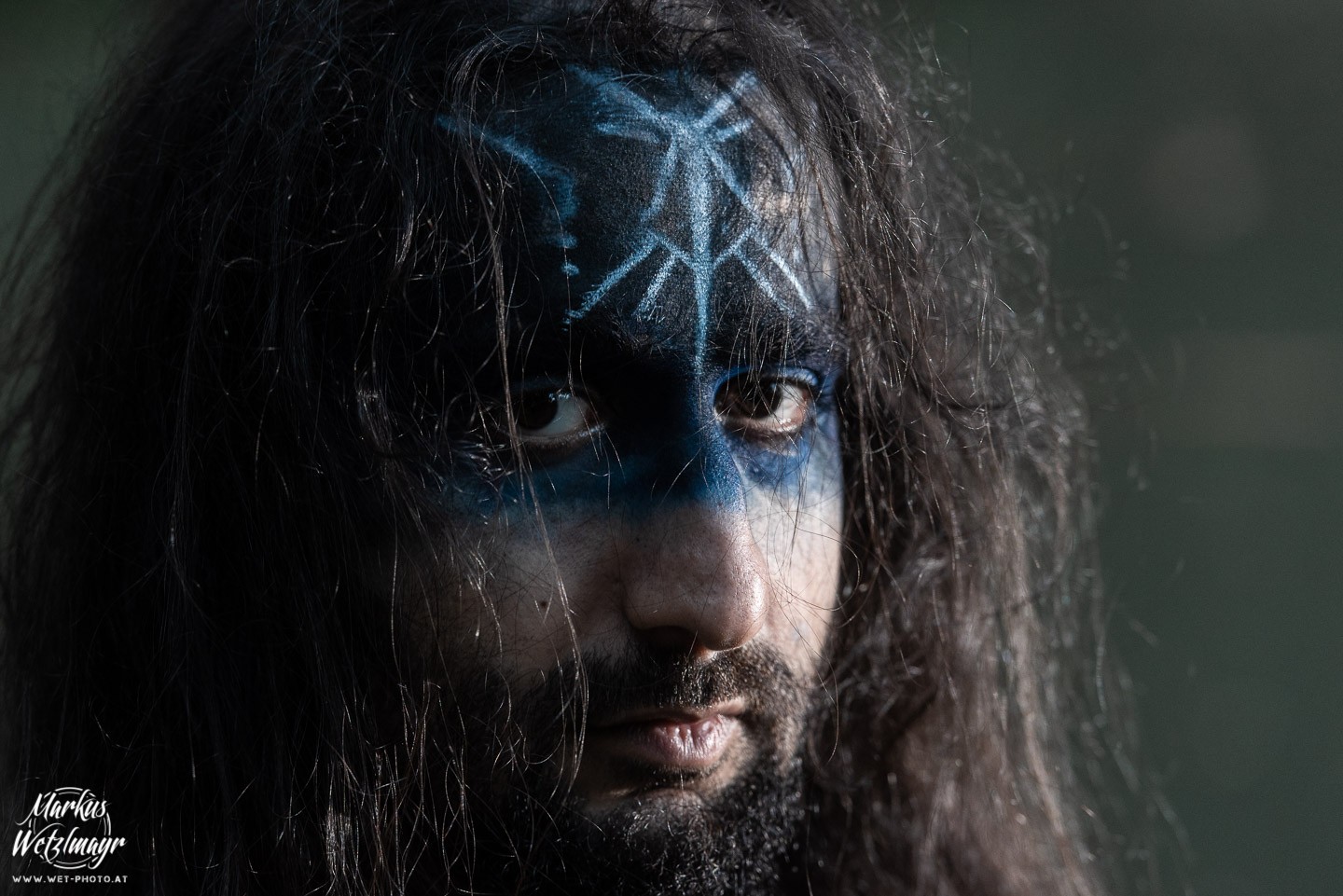
What’s a lesson you had to unlearn and what’s the backstory?
I have already elaborated the significance of playing, especially in creative work. This in itself was a lesson that replaced quite a detrimental and limiting mindset I carried around for far too long: Every creative bit that makes it to the public has to be “professional”.
Later I learned the people I worked with who pushed that belief were dwelling on an ideal in creative entrepreneurship that is neither efficient, nor realistic. In all their focus on that abstract archetype of success they missed out on being seen. Being occupied with the fear of someone judging your work because of all its imperfections is dooming all attempts to seize future opportunities. After all, art is meant to be judged. And perfection is an illusive goal. So just release and show around your awesome stuff. You will be better sooner or later anyway, so expect your future works to succeed past products. Don’t hide your failures. Instead own them and communicate them as steps on your ladder to your current creative self.
I think the significance of this lesson is easier to understand by sharing two particularly ridiculous, yet striking interactions:
A vocalist I worked with once rudely and bluntly told me that I should not sing, since I didn’t have a trained voice. She constantly lashed out at other people too for singing without having taken lessons. Ultimately that person caused insecurities in many hearts just to mask the inferiority complex she probably felt next to better vocalists than herself (plus said behavior didn’t help the reputation of our group). There is a thin line between criticism and belittling.
Another person I worked with, this time in the field of video game design, had two very contrasted reactions to me showing them music I wrote. The first time I disclosed myself as the author of the piece. I noticed they did not even take their time to consciously listen to the track. In the end a very unimpressed husk of a feedback was given.
The second time I showed them music that I wrote I pretended to introduce them to something I found online. This was particularly convenient because I wrote the song for a band to perform that I never was a member of. My game colleague was genuinely impressed and clearly had a different approach to listening to my writing. Upon revealing that the band were acquaintances of mine, they almost immediately lost all the vigor from before, playing down the impact and significance of the creative work they deemed inspiring mere moments ago. When I concluded the informal presentation by adding that I myself even wrote the song, they went from the already disappointing “Ooooh, they are just friends of yours” to a distracted “Ah cool.”
Somehow some people live their lives under the illusion that nobody from their real life circles could ever be “professional”. What a restrictive lens to perceive our beautiful world through.
What I am attempting to illustrate with these stories is that taking all feedback equally seriously, especially from creative colleagues that are stuck in a narrow minded headspace, is a slippery slope into stagnation. Success is not made in a distant land far far away, but right here and now. Your friends are capable of it, and so are you yourself. Listen to feedback, but make sure it’s constructive. In fact, first make sure it’s any feedback at all, and not someone pushing their own limiting beliefs onto you. And don’t forget to play.
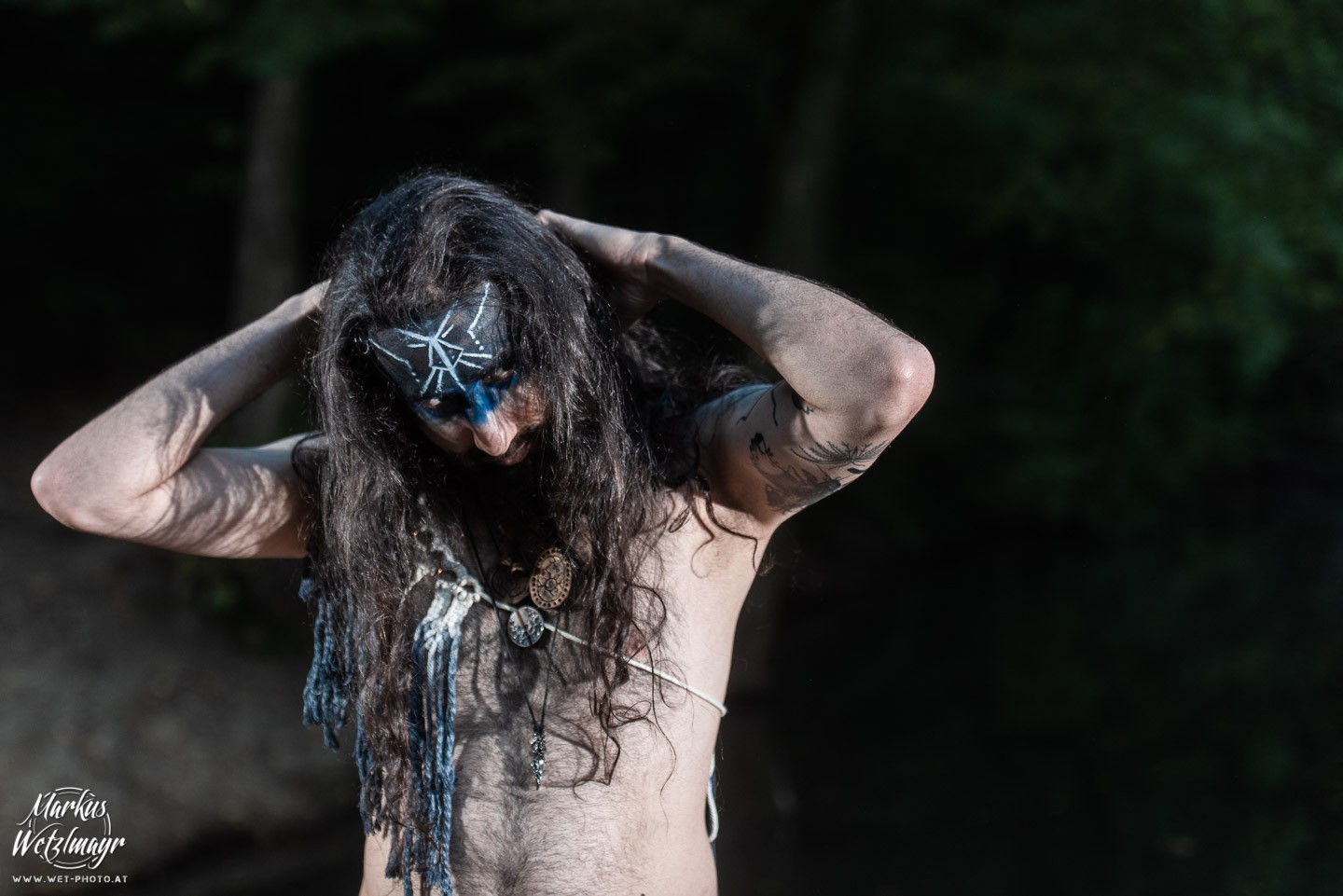
Contact Info:
- Website: http://www.havrest.at
- Instagram: instagram.com/ichhassemeinleben123
- Youtube: https://www.youtube.com/@aryanhavrest
- Other: havrest.bandcamp.com/ daedrictales.com https://daedrictales.bandcamp.com/
Image Credits
Markus Wetzlmayr Aryan Havrest Michaela Hermanova


